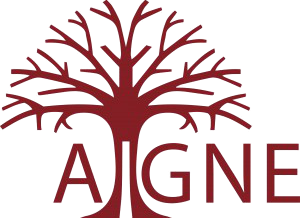Identity in protracted displacement: Exploring identity of Palestinian and Syrian refugees living in Lebanon
DOI:
https://doi.org/10.33178/aigne.vol7.3Abstract
Since the onset of the Syrian Civil War in 2011, over 5 million Syrians have been displaced globally, with no clear end in sight for the ongoing conflict (UNHCR 2017a). Syrian refugees are now worried they will be facing a situation similar to that of the Palestinians living in displacement in Lebanon for over 50 years as a result of the ArabIsraeli conflict (United Nations 1951). Currently, almost 1.5 million Palestinian and Syrians are seeking refuge in Lebanon, representing over a quarter of the total Lebanese population. In a country that is recovering from its own civil conflict, the surge of displaced Syrians, in addition to the resident Palestinian refugee population, has led to increased tensions between the Lebanese host and refugee communities. Increased labour competition, housing prices and pressure on limited resources have, in particular, contributed to this polarisation. Feelings of uncertainty for the future and a loss of identity are pervasive within the displaced Syrian population in Lebanon as they attempt to navigate survival in a new environment. In Syria, individual identities are highly influenced by religious, ethnic and tribal identities. Through civil war, these salient identities have become challenged and fragmented, pressuring displaced Syrians to continuously shape and reshape their identities in response to factors such as the ongoing conflict at home and the local landscape of displacement, as well as the global narrative environment currently beleaguering Syrian refugees. In contrast, Palestinians displaced in Lebanon have undergone multiple identity transformations throughout their protracted displacement, which are echoed in a culmination of active local and global Palestinian identities. Through reviewing literature surrounding the Palestinian and Syrian displacement, this paper seeks to provide a framework for understanding the intersectionality and complexity of identity development and the means by which this transformation affects refugee communities living in protracted displacement.Downloads
Published
2018-12-20
Issue
Section
Articles
License
For our full Copyright Notice see our Author Guidelines.
How to Cite
Macken, S. (2018). Identity in protracted displacement: Exploring identity of Palestinian and Syrian refugees living in Lebanon. Aigne Journal, 7(1). https://doi.org/10.33178/aigne.vol7.3



